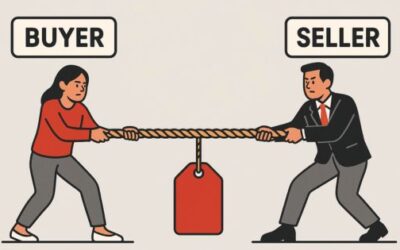Impact of Capital Expenses and Operating Expenses
Over the last three weeks we talked about the 3 key financial statements; the income statement, the balance sheet and the cashflow statement. Today we’re going to go a little deeper and talk about the difference between an operating expense and a capital expense and why it matters.
What is a Capital Expense?
A capital expense is an expense that adds value to the current business. An expense is a capital expense when it’s used to purchase an asset that has a useful life for substantially more than one year, can improve the life of the property, increases the value of property or creates a new use for the property. Simply put, think of a capital expense as investment in the business that creates a cost basis or equity.
The purpose of a capital expense is to spread the use of an asset evenly across the years it provides value.
What is an Operating Expense?
An operating expense refers to an ongoing cost that a business incurs to maintain it’s day-to-day operations. Operating expenses are directly tied to the regular functions of the business, things like rent, utilities, salaries and wages, marketing, office supplies, etc.
Example, let’s say an Ice Cream Shop, buys a new store on Main St for 200,00 dollars. In it’s fist year of business it sold 50,000 dollars of ice cream from that shop. It also spent 25,000 dollars for the ice cream, and another 15,000 in operating expenses (electricity, payroll, napkins, cups, plastic spoons etc.). When it comes time to do the taxes, the operating expenses, those things whose useful life will be consumed in a year (the ice cream and the napkins, cups, plastic spoons etc.), can be deducted against revenue.
The new store however is treated like a capital expense, because although it contributed to sales during the year, it will ALSO contribute to sales next year and the years following. Therefore it is treated differently to spread out its value to the business over the years.
Spreading the value of an asset over a longer time, prevents the company from looking too heavily burden in year one, showing a HUGE loss and then unrealistically profitable in the subsequent years.
What’s the difference between Capital Expense and Operating Expenses?
Unlike an operating expense which is recorded to the P&L as an expense immediately, a capital expense is added as an asset to the balance sheet and expensed to the P&L as depreciation overtime.
In simple terms, capital expenses hit the P&L slowly in the form of depreciation. While operating expenses hit the P&L immediately.
There can be substantial tax implications and cashflow implications when it comes to capital expenditures. Imagine a mobile carrier who is upgrading it’s network. It spends 1 Billion dollars on towers and the network and it’s spending 300 million to operate the business. Let’s say their revenue is 500 million dollars. In this case the mobile carrier laid out 1.3 billion dollars in year one to generate 500 million dollars revenue. That’s a negative 800 million in cash. However, their P&L will show the carrier as profitable as they will only be able to write off a portion of the 1 billion dollars in network costs.
It’s important to know if what you sell is a capital expense or an operating expense and what impact it has on your prospects and customers. It’s not uncommon for companies to have a capital budget separate from a general expense budget.
WITCE (What is the Customer Experience) Capital Expense vs Operation Expense Questions
- Is what your selling a capital expense or a operating expense?
- How does this affect the sale?
- Is your target market sensitive to capital expenses?
- What impact does buying your product or service have on your customer/prospects balance sheet or P&L?
- Do you have the ability to offer your product or service as a capital expense OR an operating expense (cloud service vs. own and operate) in order to meet your customers needs?
- Are their better times to be selling an operating expense vs a capital expense or vice versa?
- Can you have a conversation with your prospects about the accounting ramifications of buying your product?
For most sales people, this won’t be an issue. However, if you sell extremely high-end software, hardware, equipment and other assets understanding the difference a capital and an operating expense is key and may be the difference between making the sale or not.




0 Comments